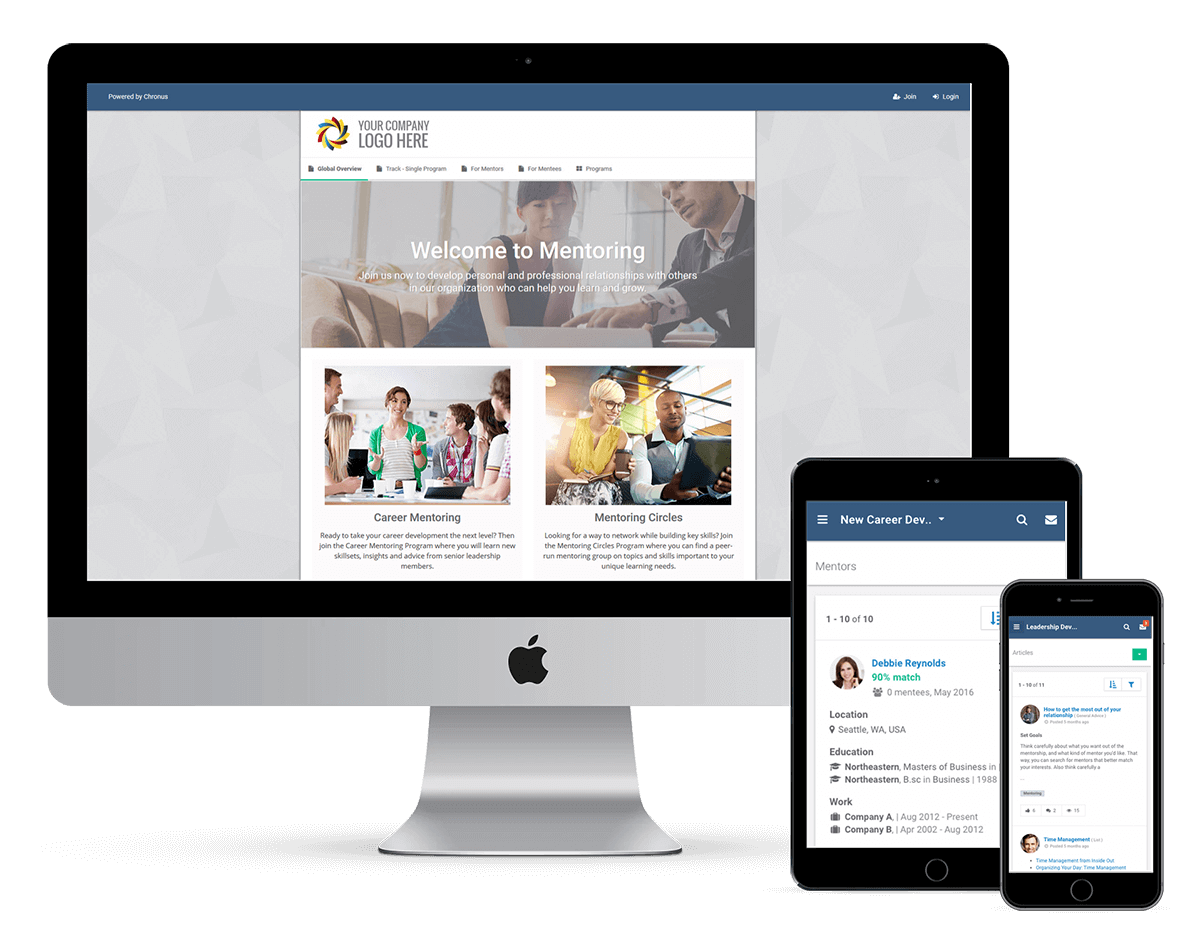Elevate Employee Retention with Mentoring
In order to retain top talent, match them with mentors and mentees that keep them growing, learning and connection.
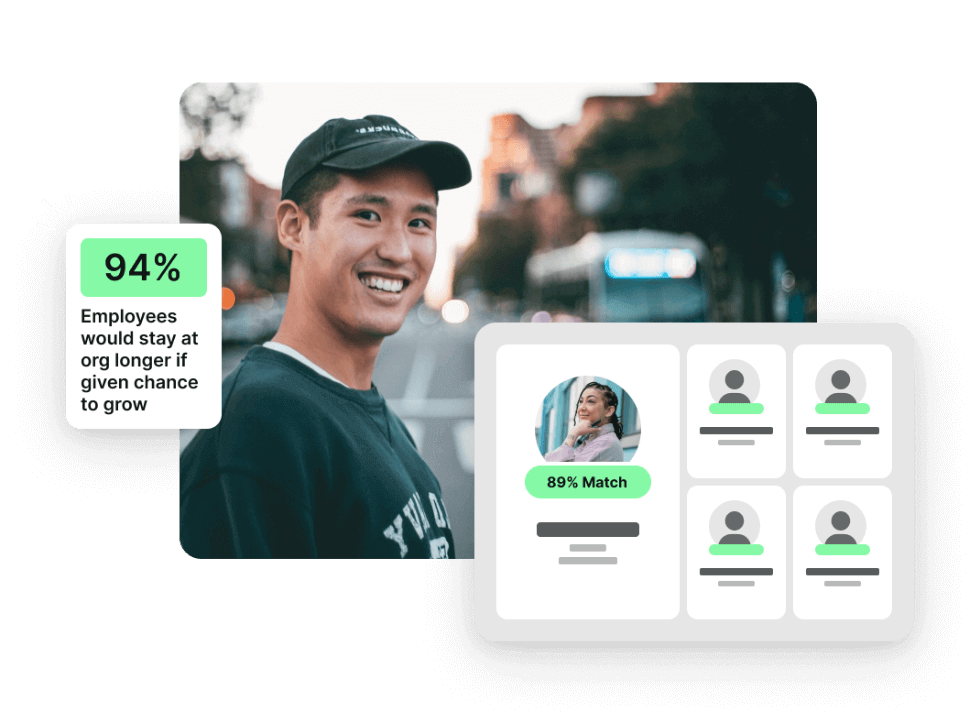
How to Retain Employees
An average of 4 million workers quit their jobs each month in 2021, according to data from the Bureau of Labor Statistics. In 2022, quits topped 4 million in every month except one. That’s a historic number of people leaving their jobs–and a significant challenge for employers who hope to retain staff. The most effective employee retention strategies focus on giving workers the tools they need to succeed, a sense of belonging and inclusion and recognition for their work. Mentoring provides the employee support and growth needed to retain and maintain top talent in your organization.
Upskill top talent through effective,
AI-powered matching
Mmentors and mentees are strategically matched through a seamless experience. Leveraging AI-powered matching technology, the Chronus platform pulls key information from your participants’ profiles such as developmental goals, competencies, function and desired skills to create rich matches in less time and effort.
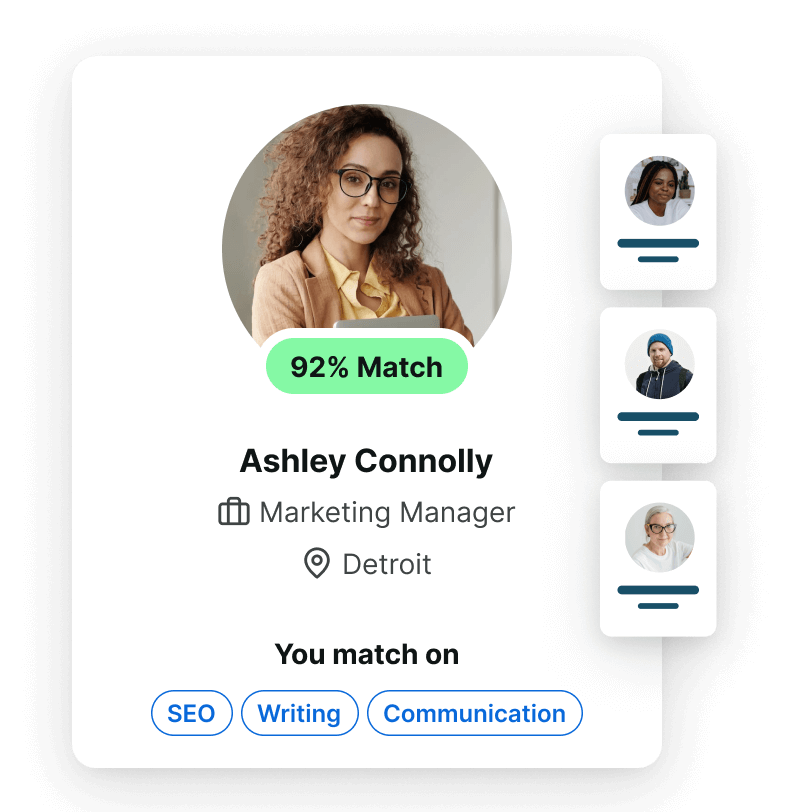
Increase organizational loyalty by guiding participants through development
Lack of career development is a top reason why employees leave an organization. With the Chronus mentoring platform, participants are guided through mentoring connection plans that set learning goals, establish milestones and enable participants to own their development and increase productivity.
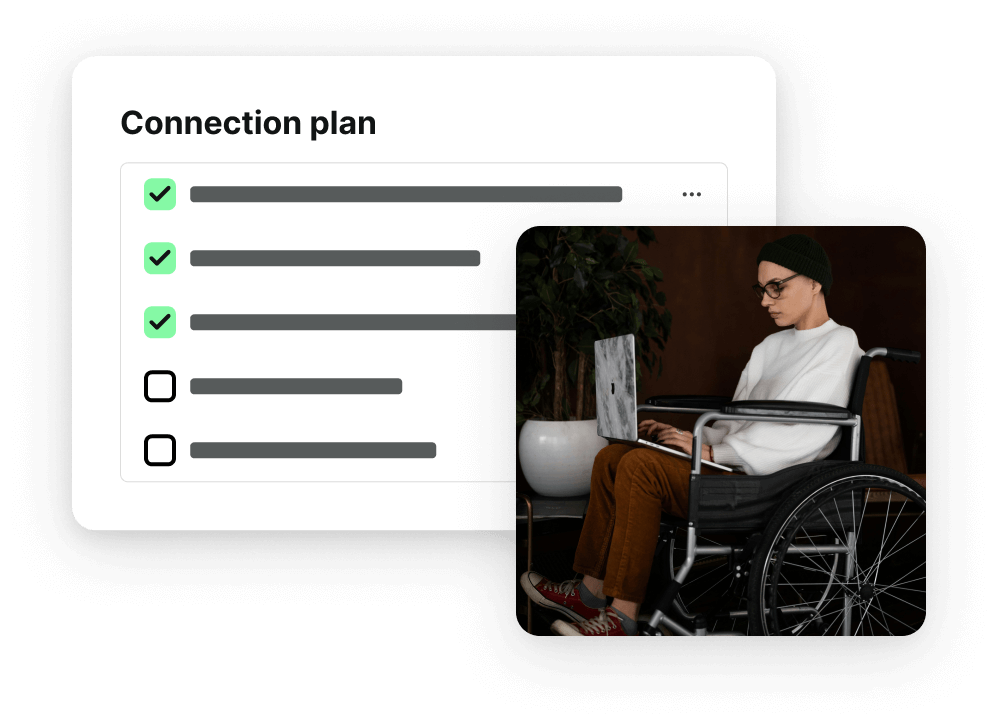
Increase employee engagement with platform integrations
The Chronus platform easily integrates with existing communication and collaboration platforms like Teams or Slack to improve the likelihood that participants will connect, meet, fill out surveys and grow. Chronus customer data found integrating mentoring programs with these types of platforms increases engagement by more than 32%.
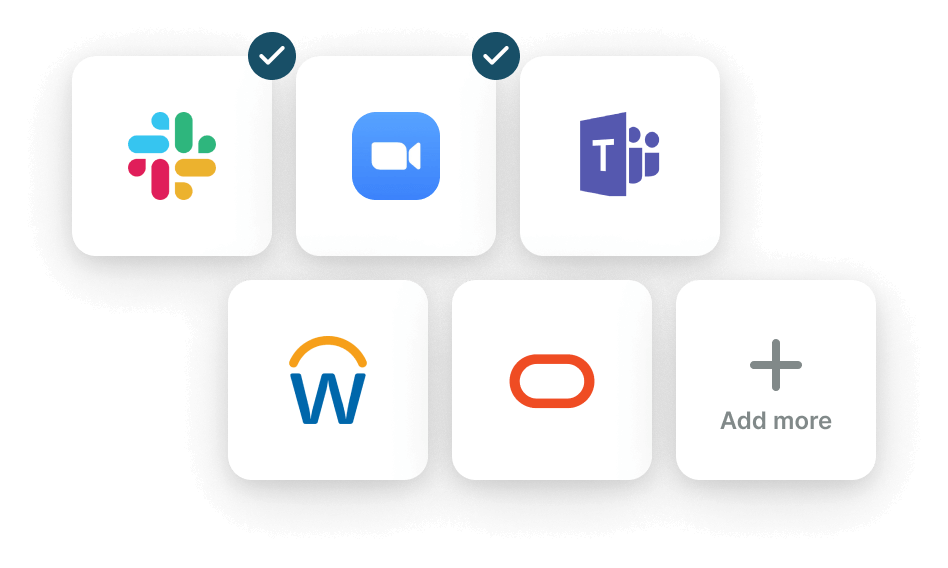
Ready to See Chronus/ Purpose-Driven Mentoring Platform?
Why Employee Retention Is Important
Why Are People Quitting Their Jobs?
During disruptions in the labor market, it’s common to hear that no one wants to work anymore. But the majority of job quitters during the Great Resignation have landed at different, better-paying gigs. The New York Times noted that BLS data showed “a nearly one-to-one correlation between the rate of (job) quitting and swapping.”
A Pew Research Center survey found that the majority of job quitters resigned because of:
63%
Low Pay
57%
feeling disrespected at work
63%
lack of opportunities for advancement
In other words, people are quitting jobs because they perceive those jobs to be a bad deal–and they’re moving on to find a better one.
But before we look at how to improve employee retention, let’s talk about why it matters. Although a certain amount of churn may be advantageous, moving out less productive workers and making space to promote motivated replacements, too much turnover is deadly to productivity, morale and your company culture.
Increases Productivity
Employee turnover negatively affects productivity in multiple ways. Most obviously, it deprives the organization of its top performers. But low retention also decreases employee engagement among remaining staff–and low engagement equals reduced productivity.
Improves Employee Experience
Employee experience is deeply linked to turnover, productivity, and company culture. Per Gartner, employees who report a positive employee experience are 60% more likely to stay with their employer. To create this experience, employers should provide support from the first days of onboarding through the mid-career and into leadership levels in the form of flexibility, learning, feedback and mentorship.
Reduces Costs
Even before the Great Resignation, employee turnover was a costly problem for employers. In 2019, Gallup estimated that voluntary turnover cost U.S. businesses $1 trillion each year. Experts estimate that the cost of replacing an employee is one-half to two times that employee’s annual salary. Consider the fact that the employees who are most likely to leave are the ones you can spare the least–the high performers.
Raises Morale
High employee turnover is linked with low morale both as a cause and as an effect. Research has shown that teams with low morale have lower productivity, poorer performance and increased employee discontent–in short, a recipe for retention problems. Meanwhile, high employee turnover has been shown to lead to low morale in remaining team members, creating the potential for a vicious cycle.
Calculate ROI With Our Employee Retention Calculator
Want to see how the power of mentoring can improve your business goals? Utilize our employee retention calculator to see how mentoring can retain employees and save you big money in the long-term.
Types of Mentoring for Improving Employee Retention
Employee Career Mentoring
Offering a formal career mentoring program is a tangible way to show employees that you’re investing in their careers. Career mentoring is by far the most common mentoring program we see in the workplace. This traditional one-to-one mentoring relationship can last 6-12 months. Employees get the opportunity for learning and development, which can help advance their careers and keep them from feeling stagnant in their roles.
Reverse Mentoring
Reverse mentoring partners an older, more experienced employee with a younger, less experienced newcomer. Companies can implement reverse mentoring in a one-to-one or group setting. The younger employee serves as the mentor, providing senior members of the organization with up-to-date information on the latest business technologies, technical skills, and workplace trends.
High-Potential Mentoring
Retaining your high-potential employees is a key factor in continuing organizational success. A healthy pipeline of talent with the right knowledge, capabilities and leadership aptitude enables organizations to stay competitive. This mentoring format of one-to-one or group mentoring nurtures a company’s leadership chain.
Start Improving Employee Retention
with Chronus Mentoring Software
Mentoring has been proven to improve retention rates, especially during times of upheaval. It is a strategic lever for organizations that are struggling to retain top talent (or anticipating future staffing crunches). Formal mentoring programs can help your organization keep its best workers by improving job satisfaction, skill development and advancement opportunities for all employee demographics.
When building an impactful mentoring program to increase retention, intentionality is vital. That’s why utilizing mentoring software is critical to effectively work on program initiatives. The time and effort it takes to manage a manual mentoring program is enough to make anyone want to call it quits.
With Chronus mentoring software, you can automate your program, more easily match your participants and track the progress and impact over time. Improve employee retention with mentoring and showcase impact to stakeholders, all while keeping your employees and their needs front and center with the Chronus mentoring platform.
